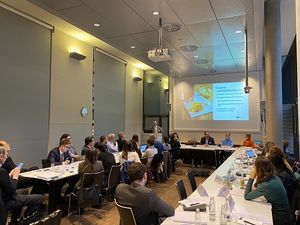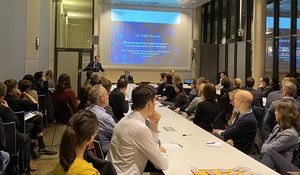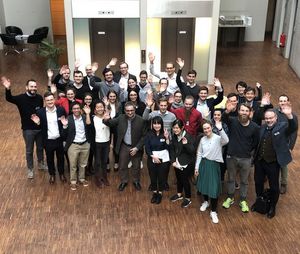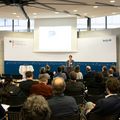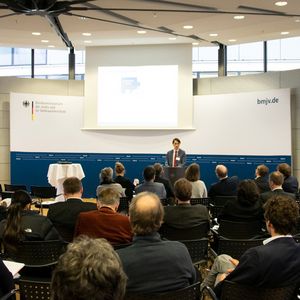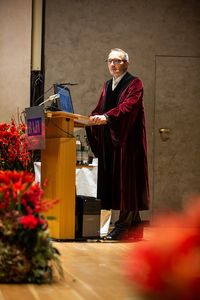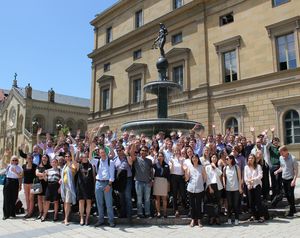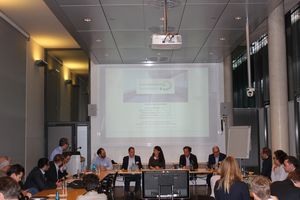Geographical Indications (GIs) are designations for products from a geographical area that owe their quality or reputation to their geographical origin. In the European Union, they are protected as Intellectual Property rights by an independent legal system. Since they are also an instrument of agricultural policy to promote production and living conditions in rural areas, there are many differences with other fields of IP rights. Specificities also arise from the fact that the first and often most important phase of the granting of rights takes place before national authorities, whereby national traditions and idiosyncrasies could impair the desired uniformity of protection.
Since there has been little legal research on GIs - despite increased attention to the subject from politics and the economy - the Max Planck Institute for Innovation and Competition launched a research project at the beginning of last year to analyze the GI system within the EU and beyond. On 13 and 14 February, the Institute hosted a workshop on GIs in which international experts from academia and practice, as well as representatives of authorities from the EU and some member states, took part. During the workshop, the Institute's researchers were able to present their preliminary research results and discuss with the participants.
Geographical Indications in the EU
To start the workshop, project coordinator Andrea Zappalaglio explained the aims and structure of the project; he presented the results of the evaluation and empirical analysis of the protection parameters summarized in the specifications for GIs registered in the EU database DOOR (Database of Origin & Registration). In this database, managed by the EU Commission, all registered agricultural products and foodstuffs are published.
Afterwards, representatives of the EU Commission provided insights into the work and plans of the new Commission. Francis Fay, head of the unit responsible for GIs in the Directorate-General for Agriculture and Rural Development (DG Agri), and Valerie Dufour from DG Agri explained the Commission's current audit practice and the EU policy on GIs and discussed with the participants the challenges and options for optimizing the system. Marie D'Avigneau and Malwina Mejer from the Directorate-General for the Internal Market, Industry, Entrepreneurship and SMEs (DG Grow) reported on the status of work on creating protection of GIs for non-agricultural products.
On the second day of the workshop, the Max Planck research team first presented the preliminary results of a comparative analysis of the national procedures under which GI applications are examined in the member states. Alexander von Mühlendahl, lawyer at the Munich law firm Bardehle Pagenberg and Visiting Professor at Queen Mary University in London, and Elisa Zaera Cuadrado from the European Union Intellectual Property Office (EUIPO) then explained the relationship between trademarks and GIs in EU law and the examination practice of the EUIPO. Pilar Montero from the University of Alicante spoke about the scope of protection of GIs, which has developed from EU law and the case law of the European Court of Justice.
GIs from an international perspective
In the morning’s second session, the workshop focused on the international perspective. Roxana Blasetti from the University of Buenos Aires, who is a Visiting Scientist at the Institute, presented the negotiated solution for the mutual protection of GIs of the contracting parties in the Free Trade Agreement between the EU and the Mercosur countries.
Subsequently, Max Planck researchers Suelen Carls and Pedro Batista gave an overview of the Institute's project "Smart IP for Latin America" and explained the research activities related to the component of the project devoted to examining the protection of GIs in selected Latin American countries. In the final talk, Alexandra Grazioli, Director of the World Intellectual Property Organization (WIPO), spoke about opportunities and challenges for the Lisbon Agreement on Appellations of Origin and Geographical Indications administered by WIPO following the entry into force of the Geneva Act on 26 February 2020.
The workshop ended with an intensive discussion in the afternoon of the second day, moderated by Max Planck researcher Annette Kur. The valuable feedback from the participants gave the Institute's research group important impulses for their further work. After the empirical analysis of the GIs registered in the EU, the project will focus on the functioning of the national authorities involved in the protection system and on the cooperation between them, the applicants and the EU Commission. Based on these empirical findings, an analysis of selected legal questions will follow.


